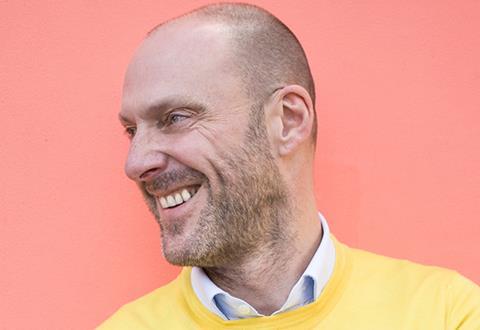What the strife at the AA and RIBA tells us about leadership, democracy and power

Distressing news this week about the continued tribulations at the AA. I don’t know the school very well, and I certainly don’t know the personalities involved, but reading between the lines of the stories here on Building Design it seems clear that the very passionate and polarised views held by the different groups involved are not able to be solved by the traditional route of good leadership. Indeed, it’s the very leadership of that organisation that is, itself, suffering the biggest fall-out.
Then we have the RIBA and the election for a new president. I’ve always thought it’s somewhat of a poisoned chalice, that one. It’s a prestigious role, fought for with published manifestos and public hustings, that in truth is not very powerful and doesn’t offer the victor any real time to make significant change. Talking to any number of past presidents you will hear the same complaints about bureaucracy, inertia and vested interests that don’t like change. I’m certain that the enthusiastic promises made by every eager presidential hopeful are more often than not met with supportive but fatalistic “good luck with that” responses from friends and colleagues.
What the current state of both of these organisations shows is how important good leadership is. At the AA, the complaint from those who gathered to deliver the votes of no confidence in the director that led to her dismissal is about “executive power [over] the school community’s right to democratic oversight”. This is interesting and raises all kinds of issues about the role of leadership in democratic organisations, the nature of leadership itself and how democratic processes are morphing in our new world.
At the RIBA, those who complain about the effectiveness of any particular president should question whether the organisation itself (formally or informally) even allows its president any power to make change. It might be written into the constitution, but that is not the same as how it plays out in practice.
Good leadership only works if everyone involved clearly understands the difference between leadership, management and autocracy. Leadership creates the environment in which good management flourishes. It’s incumbent on both good leaders and good managers that each understands their place in this partnership. In democracies, leaders lead through delegated permission and those who elect them, or serve under them, allow them this privilege. It’s how public polls in the UK can show consistent majority support for capital punishment, but our laws don’t change – because those we elect to make the decision for us see a broader picture of a tolerant, humane society in the round where capital punishment would be an anomaly. And we, the electors, are happy to let them.
>> Also read: RIBA’s new chairman ‘set to quit before he starts’
>> Also read: Arb in crisis talks after chair and chief executive quit
>> Also read: RIBA president resumes role after revealing reason why he stepped down
So where does that leave the AA and RIBA? If an electorate is unhappy about the way it is being led, is the only answer to remove the leader, arguing that the leadership is autocratic? For me that fundamentally undermines the concept of leadership and the responsibility it should carry. It says: “the minute enough of us don’t like what you’re doing, you’re out”. What then? Elect another leader and tell them they’re on borrowed time until they perform appropriately? How many times are you going to do that and what’s going to happen to the organisation itself, its students and their education while the democratic strife plays out?
I can’t find much love for the RIBA among my friends and colleagues. A grudging respect for its professional practice support maybe, but no passionate sense that it is playing any kind of leadership role in a modern, vital industry. Particularly now. That for me feels like a failure to understand leadership of another kind. It would be a brave organisation that invested the power in its democratically elected leader to make the kind of real change the built environment industry really needs right now. If the RIBA invested half as much hope in the president who will shortly be elected as the candidates themselves have right now, maybe a new kind of leadership could drive a new kind of organisation – one that is relevant, modern and bold.
















No comments yet